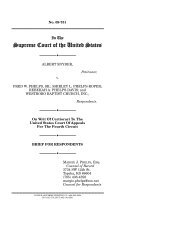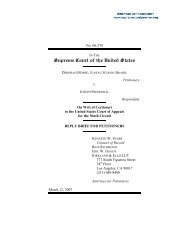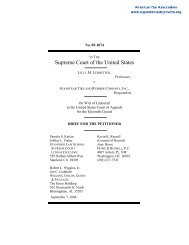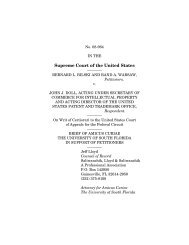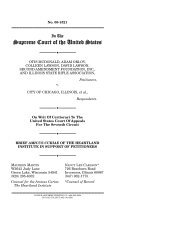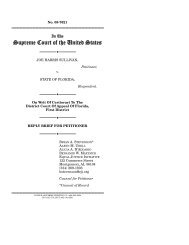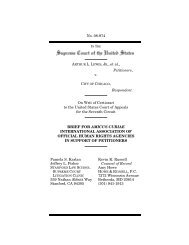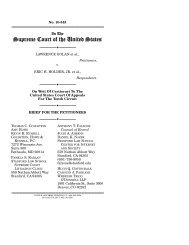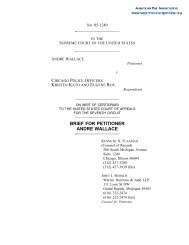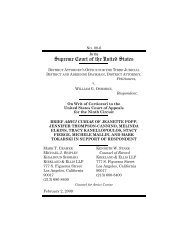Brief of respondent for Florida v. Powell, 08-1175 - Oyez
Brief of respondent for Florida v. Powell, 08-1175 - Oyez
Brief of respondent for Florida v. Powell, 08-1175 - Oyez
You also want an ePaper? Increase the reach of your titles
YUMPU automatically turns print PDFs into web optimized ePapers that Google loves.
9<br />
The <strong>Florida</strong> Supreme Court concluded that the<br />
warnings were defective because “[b]oth Miranda and<br />
article I, section 9 <strong>of</strong> the <strong>Florida</strong> Constitution require<br />
that a suspect be clearly in<strong>for</strong>med <strong>of</strong> the right to have<br />
a lawyer present during questioning.” JA 174 (State v.<br />
<strong>Powell</strong>, 998 So. 2d 531, 542 (Fla. 20<strong>08</strong>)). The court<br />
recognized that the <strong>Florida</strong> Constitution and<br />
Miranda give a suspect a right to the presence <strong>of</strong><br />
counsel not just be<strong>for</strong>e interrogation, but also during.<br />
It determined that, under the <strong>Florida</strong> Constitution,<br />
police must convey to suspects the right to consult<br />
with a lawyer be<strong>for</strong>e being interrogated and to have<br />
the lawyer present during interrogation. JA 157-58.<br />
The court also recognized that “there is no talismanic<br />
fashion in which [warnings] must be read or a<br />
prescribed <strong>for</strong>mula that they must follow, as long as<br />
the warnings are not misleading.” JA 171 (quotation<br />
source omitted) (emphasis in original).<br />
Based on the above, the court held that advising<br />
a suspect <strong>of</strong> only the right to talk to an attorney<br />
be<strong>for</strong>e questioning was “misleading.” JA 171. Telling<br />
suspects they have the right to talk with a lawyer<br />
be<strong>for</strong>e answering any questions “is not the functional<br />
equivalent <strong>of</strong> having the lawyer present with you<br />
during questioning.” JA 170-71. The court further<br />
found that, when read as a whole, nothing in the <strong>for</strong>m<br />
eliminated the misleading limitation. Specifically, the<br />
court rejected Petitioner’s argument that the final<br />
sentence in Form 310, stating “[y]ou have the right to<br />
use any <strong>of</strong> these rights at any time you want during<br />
this interview,” remedied the misleading nature <strong>of</strong>



